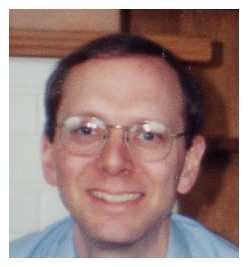
TESOL Task Force on Adult Teacher Standards Issues Draft
A Firsthand Report from TESOL 2002 in Salt Lake City
Background
In 1998, the TESOL Board of Directors created a task force called Standards for Teachers of Adult Learners. It was charged with the task of developing a standard for assessing the knowledge and skills of ESL teachers who work with adult (postsecondary) learners in the United States. The applicable educational settings for the new standards range from ESL departments in universities (including IEPs) to community colleges and workplace programs. The Board also asked the task force to investigate whether the new standards could be applied to settings outside of the United States.
The current state of the project was discussed at a TESOL 2002 conference session led by the task force members. The session will be reviewed briefly below.
The Draft Standards
The latest draft of the TESOL Standards for Teachers of Adult Learners, dated March 22, 2002, was disseminated and described at the conference session. The document includes eight "domains", or professional areas for evaluating a teacher's performance: Planning, Instructing, Assessing, Identity and Setting, Language, Learning, Content, and Commitment to Professionalism. The draft document includes a brief definition of each domain, an extended narrative description to establish the parameters of that domain, plus a list of teacher performance indicators that apply to the domain. The number of indicators varies for each domain from five to twenty-five in the current draft.
After describing each domain in detail, the task force discussed the future uses of the document. There were several possibilities mentioned, the most interesting of which was the development of a TESOL teacher certificate program using the adult teacher standards to evaluate candidates' skills. This appeared to be the first mention of the idea in a forum of the TESOL membership, and it generated significant discussion. Session participants asked many questions and discussed the project's implications for adult educators. During and after the conference session, the presenters invited participants to forward their questions, comments, and ideas to the task force for consideration in future drafts.
Conclusion
In sum, the Adult Teacher Standards task force has done a significant amount of work on the project in four years. However, the task force members made it clear that more work and discussion is needed. Adult educators in TESOL and other interested members are encouraged to review, discuss, and comment on the draft Standards.
For more information, the philosophy, goals, and assumptions of the task force employed in writing the standards document are discussed on the TESOL web site. In addition, the latest draft of the standards document will be available soon at the same web site address; as of this writing (3 May 2002), it has not yet been posted. Questions, comments, ideas, and concerns can be directed to the task force members (see below).
The TESOL Standards for Adult Teachers Task Force
Mary Ann Christison
Donald Freeman
Denise Murray
Sharon Seymour
Report by James J. Mischler
2002 ESL MiniConference Online
 Jim Mischler has been an ESL/EFL instructor for more than 12
years to adult learners in a variety of settings, including Japan.
He has served on the faculty of the American English Institute, University
of Oregon, USA, since 1999. He is a member of TESOL and Oregon TESOL.
He attended a session at TESOL 2002 where the Adult Teacher Standards
task force presented a draft of recommendations.
Jim Mischler has been an ESL/EFL instructor for more than 12
years to adult learners in a variety of settings, including Japan.
He has served on the faculty of the American English Institute, University
of Oregon, USA, since 1999. He is a member of TESOL and Oregon TESOL.
He attended a session at TESOL 2002 where the Adult Teacher Standards
task force presented a draft of recommendations.
Current Members
University of Utah, USA
maryannc@cut.net
School for International Training, Vermont, USA
No longer a task-force member
Macquarie University, Australia
dmurray@nceltr.mq.edu.au
Community College of San Francisco, USA
sharon126@aol.com
mischler@clipper.net
American English Institute
University of Oregon